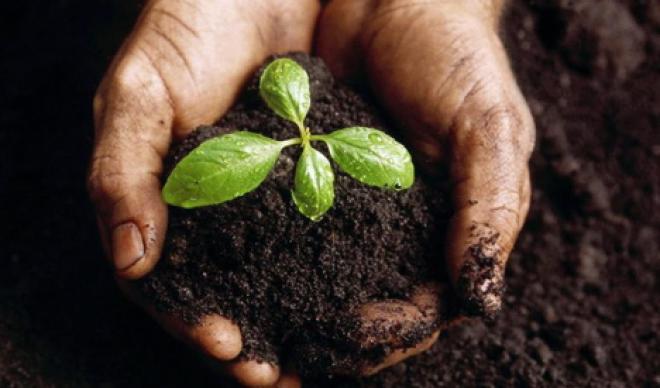
Twelve College of Idaho graduating senior environmental studies students will present their respective theses starting at 9 a.m. on Saturday, April 28 in the Cruzen-Murray Library Presentation Room, each of them exploring the topic of local soil health through multiple lenses.
Each year, the C of I’s senior environmental studies students select a topic with relevance to the Treasure Valley community. This year’s topic has been given the title “Earth, Loam, Dirt, Dust: Soil Fertility in the Treasure Valley of Southwest Idaho.” The morning’s presentations will be divided into two parts, with the first half of the morning dedicated to the soil’s present state and the second half devoted to how soil may be treated for the future.
Recent findings published six weeks ago by the Intergovernmental Science-Policy Platform on Biodiversity and Ecosystem Services (IPBES) have concluded “[m]ore than 75 percent of the Earth’s land areas are substantially degraded, undermining the well-being of 3.2 billion people.” Their report has been described as “the world’s first comprehensive, evidence-based assessment” of the Earth’s pedosphere.
C of I Environmental Studies and English Professor Rochelle Johnson said the group originally chose their topic to follow up on the community interest surrounding talks sponsored by the Treasure Valley Food Coalition centered on soil. However, Johnson said the findings of IPBES have given the topic a new sense of urgency.
“Idaho’s soils are suffering, so this is both a global and local issue,” Johnson said. “The students’ presentations offer a chance to consider soil from a variety of angles — in terms of soil science, economics and policy, and communication of ideas pertaining to soil.”
Some of the specific topics the students’ presentations will explore include the relationship between farming practices and soil organic carbon, the impact of nature and soil on human mental and physical health, and the use of conservation easements as a long-term tool for soil stewardship.
The program is free to attend and includes refreshments. Johnson said the public is encouraged to visit during the presentations, particularly anyone with an interest in agriculture.
“Local area farmers and agricultural workers will likely hear some information with which they are familiar and some that is new, and we’re hopeful that they can ask us questions—and make comments—that deepen our own thinking on these matters,” Johnson said.
The College of Idaho has a 127-year-old legacy of excellence. The C of I is known for its outstanding academic programs, winning athletics tradition and history of producing successful graduates, including seven Rhodes Scholars, three governors and countless business leaders and innovators. Its distinctive PEAK Curriculum challenges students to attain competency in the four knowledge peaks of humanities, natural sciences, social sciences and a professional field—empowering them to earn a major and three minors in four years. The College’s close-knit, residential campus is located in Caldwell, where its proximity both to Boise and to the world-class outdoor activities of southwest Idaho’s mountains and rivers offers unique opportunities for learning beyond the classroom. For more information, visit www.collegeofidaho.edu.